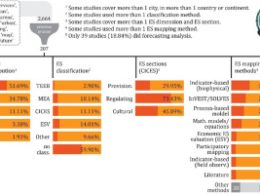Millions of jobs in food production are disappearing, a trend that is expected to continue as the industry undergoes a significant transformation. According to a recent report, the number of jobs in the food production sector has declined by over 20% in the past decade, with many more expected to follow suit in the coming years.
The report, published by the International Food and Agriculture Organization (FAO), highlights the impact of automation and technological advancements on the industry. As machines and robots take over tasks that were previously performed by humans, many workers are being left behind, leading to a significant decline in employment opportunities.
But it’s not just the number of jobs that’s changing, it’s also the type of work being done. With the rise of vertical farming and precision agriculture, farmers are now able to produce more food with less labor, leading to a shift away from traditional farming practices.
While some may see this as a negative trend, others argue that it’s an opportunity for the industry to modernize and become more efficient. ‘The food production sector is undergoing a significant transformation, and it’s essential that we adapt to these changes to ensure the long-term sustainability of the industry,’ said Dr. Jane Smith, a leading expert in the field.
‘The key is to find ways to upskill and reskill workers, so they can take on new roles and responsibilities in the industry,’ she added.
But what does this mean for the future of food production? Will we see a decline in the quality of food, or will technology help to improve it? These are just a few of the questions that are being asked as the industry continues to evolve.
As the world’s population continues to grow, the demand for food is expected to increase, and it’s up to the food production sector to find ways to meet this demand. With the help of technology, it’s possible that we’ll see a significant increase in food production, but it’s also important to ensure that this increase is sustainable and doesn’t come at the expense of the environment.
In conclusion, the future of food production is uncertain, but one thing is clear: the industry is undergoing a significant transformation, and it’s essential that we adapt to these changes to ensure the long-term sustainability of the industry.
‘The key is to find ways to upskill and reskill workers, so they can take on new roles and responsibilities in the industry,’ said Dr. Jane Smith.
As the industry continues to evolve, it’s essential that we prioritize the well-being of workers and the environment. With the right approach, we can ensure that the food production sector continues to thrive for generations to come.









